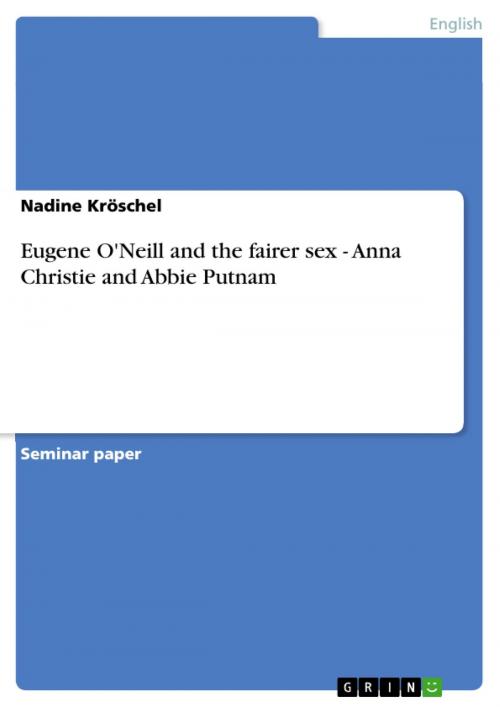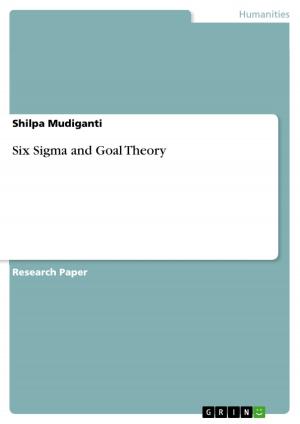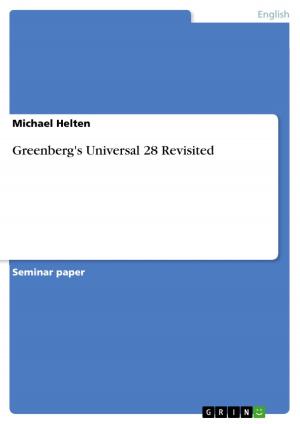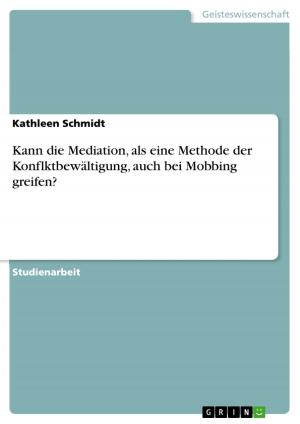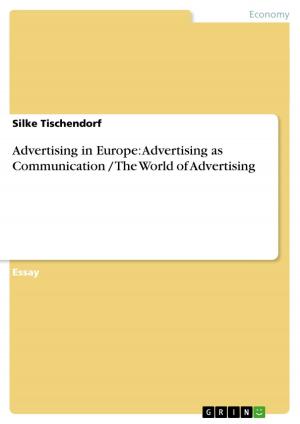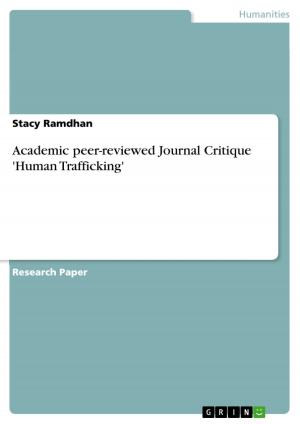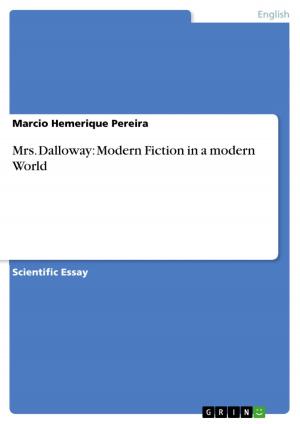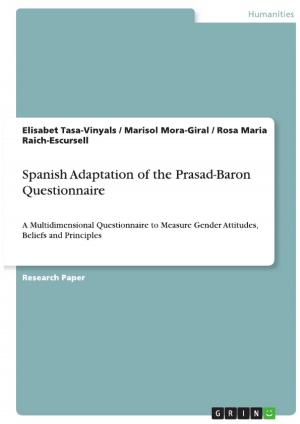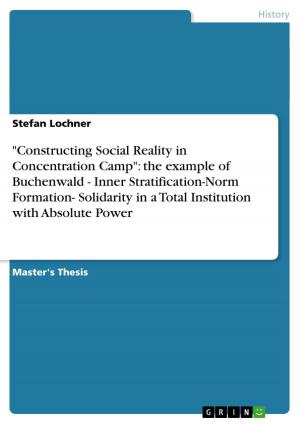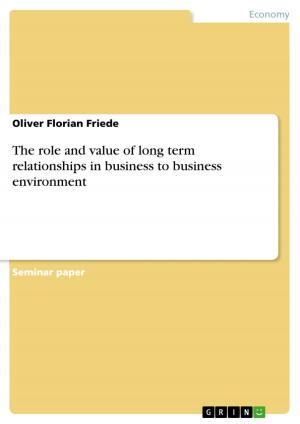Eugene O'Neill and the fairer sex - Anna Christie and Abbie Putnam
Anna Christie and Abbie Putnam
Nonfiction, Entertainment, Drama, Anthologies| Author: | Nadine Kröschel | ISBN: | 9783638524414 |
| Publisher: | GRIN Publishing | Publication: | July 21, 2006 |
| Imprint: | GRIN Publishing | Language: | English |
| Author: | Nadine Kröschel |
| ISBN: | 9783638524414 |
| Publisher: | GRIN Publishing |
| Publication: | July 21, 2006 |
| Imprint: | GRIN Publishing |
| Language: | English |
Seminar paper from the year 2004 in the subject American Studies - Literature, grade: 2,2, University of Marburg, 7 entries in the bibliography, language: English, abstract: Eugene O'Neill's portraits of women have occupied a position of prominence in his works and his efficacious handling of their psychological states, offers a comprehensive insight into the arena of their motivation and actions. Women in general play a huge role in the life of the American playwright Eugene O'Neill. One of Eugene O'Neill's earliest heroines is Anna Christie. The play Anna Christie, written in 1920 and first published in 1922, is an outgrowth of the earlier play called Chris Christopherson. In Chris Christopherson, Anna's father dominates the play, whereas in Anna Christie the protagonist is a woman. It is the story of Anna's regeneration through the love of a man and under the influence of the sea. Anna used to work as a prostitute but is now living happily on her father's barge and says of herself to have preserved a virginal soul. On her father's barge she meets Mat Burke with whom she falls deeply in love. Their passion develops rapidly up to a point where Anna confesses her past. '[...] I wasn't no nurse girl the last two years - I lied when I wrote you - I was in a house, that's what!yes, that kind of a house - the kind sailors like you and Mat goes to in port - and your nice inland men, too - and all men, God damn'em! I hate 'em! Hate 'em!' ('Anna Christie' 339) Mat's reaction to this revelation is a violent one and he continuously rebels against the idea of marrying a woman with such a troubled past. However, Anna asserts that she never really loved any man before she met him. In a desperate attempt to get away from Anna, Mat gets drunk. He leaves and signs on a steamer for Cape Town. In the end, he realized that he cannot escape from his feelings and returns to Anna, willing to ignore his initial doubts. 'If I was believing - that you'd never had love for any other man in the world but me - I could be forgetting the rest, maybe.' ('Anna Christie' 350). '[...] We'll be wedded in the morning, with the help of God.[Still more defiantly.] We'll be happy now, the two of us, in spite of the divil! [He crushes her to him and kisses her again.][...]' ('Anna Christie' 352) Two years later, in 1924, when O'Neill wrote Desire under the Elms he still holds up to this theme of a prostitute helplessly trapped by circumstances. As I stated before, the prostitute Anna Christie was transformed through the true love of Mat Burke. [...]
Seminar paper from the year 2004 in the subject American Studies - Literature, grade: 2,2, University of Marburg, 7 entries in the bibliography, language: English, abstract: Eugene O'Neill's portraits of women have occupied a position of prominence in his works and his efficacious handling of their psychological states, offers a comprehensive insight into the arena of their motivation and actions. Women in general play a huge role in the life of the American playwright Eugene O'Neill. One of Eugene O'Neill's earliest heroines is Anna Christie. The play Anna Christie, written in 1920 and first published in 1922, is an outgrowth of the earlier play called Chris Christopherson. In Chris Christopherson, Anna's father dominates the play, whereas in Anna Christie the protagonist is a woman. It is the story of Anna's regeneration through the love of a man and under the influence of the sea. Anna used to work as a prostitute but is now living happily on her father's barge and says of herself to have preserved a virginal soul. On her father's barge she meets Mat Burke with whom she falls deeply in love. Their passion develops rapidly up to a point where Anna confesses her past. '[...] I wasn't no nurse girl the last two years - I lied when I wrote you - I was in a house, that's what!yes, that kind of a house - the kind sailors like you and Mat goes to in port - and your nice inland men, too - and all men, God damn'em! I hate 'em! Hate 'em!' ('Anna Christie' 339) Mat's reaction to this revelation is a violent one and he continuously rebels against the idea of marrying a woman with such a troubled past. However, Anna asserts that she never really loved any man before she met him. In a desperate attempt to get away from Anna, Mat gets drunk. He leaves and signs on a steamer for Cape Town. In the end, he realized that he cannot escape from his feelings and returns to Anna, willing to ignore his initial doubts. 'If I was believing - that you'd never had love for any other man in the world but me - I could be forgetting the rest, maybe.' ('Anna Christie' 350). '[...] We'll be wedded in the morning, with the help of God.[Still more defiantly.] We'll be happy now, the two of us, in spite of the divil! [He crushes her to him and kisses her again.][...]' ('Anna Christie' 352) Two years later, in 1924, when O'Neill wrote Desire under the Elms he still holds up to this theme of a prostitute helplessly trapped by circumstances. As I stated before, the prostitute Anna Christie was transformed through the true love of Mat Burke. [...]
